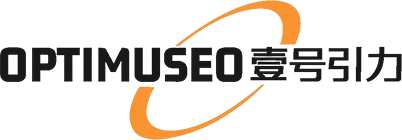Advanced Technical SEO is a crucial aspect of digital marketing that focuses on optimizing a website's technical infrastructure to improve its search engine visibility and performance. This involves implementing advanced strategies and techniques to ensure that a website is easily accessible, crawlable, and indexable by search engines. It also involves optimizing the website's speed, mobile-friendliness, and overall user experience. Advanced Technical SEO goes beyond the basics of on-page optimization and content creation, delving into the technical aspects of a website to ensure that it is fully optimized for search engines.
One of the key components of Advanced Technical SEO is ensuring that a website's architecture is well-structured and organized. This involves optimizing the website's URL structure, internal linking, and navigation to make it easier for search engines to crawl and index the site. Additionally, Advanced Technical SEO involves optimizing the website's code and server settings to improve its speed and performance. This includes minimizing code bloat, optimizing images and other media files, and implementing server-side caching to reduce load times. Overall, Advanced Technical SEO is essential for ensuring that a website is technically sound and optimized for search engine visibility.
Leveraging Schema Markup and Structured Data
Schema markup and structured data are advanced technical SEO techniques that involve adding additional information to a website's HTML code to provide search engines with more context about the content on the page. This additional information can help search engines better understand the content on a website, leading to improved visibility and higher rankings in search results. Schema markup can be used to provide information about products, events, recipes, reviews, and more, making it easier for search engines to display rich snippets in search results.
In addition to improving search engine visibility, leveraging schema markup and structured data can also enhance the user experience by providing more relevant and informative search results. For example, adding schema markup for a recipe can result in the recipe being displayed directly in the search results, making it easier for users to find and engage with the content. Overall, leveraging schema markup and structured data is an advanced technical SEO technique that can have a significant impact on a website's visibility and performance in search results.
Optimizing for Mobile-First Indexing
With the majority of internet users now accessing websites on mobile devices, optimizing for mobile-first indexing has become a critical aspect of advanced technical SEO. Mobile-first indexing means that Google predominantly uses the mobile version of a website for indexing and ranking, rather than the desktop version. This shift in indexing prioritizes mobile-friendly websites, making it essential for businesses to ensure that their websites are fully optimized for mobile devices.
To optimize for mobile-first indexing, websites should be designed with a responsive or mobile-friendly design that provides a seamless user experience across all devices. This includes optimizing page load times, ensuring that content is easily accessible and readable on mobile devices, and implementing mobile-specific features such as click-to-call buttons and location-based services. Additionally, optimizing for mobile-first indexing also involves ensuring that the website's structured data and schema markup are consistent across both desktop and mobile versions. Overall, optimizing for mobile-first indexing is crucial for ensuring that a website remains competitive in search engine rankings and provides a positive user experience across all devices.
Utilizing Advanced Crawl Budget Management
Crawl budget refers to the number of pages on a website that a search engine will crawl and index within a given time period. Advanced crawl budget management involves optimizing a website's structure and internal linking to ensure that search engines are able to crawl and index the most important pages efficiently. This includes prioritizing high-value pages, minimizing crawl errors, and removing or blocking low-value or duplicate content to maximize crawl budget allocation.
In addition to optimizing a website's structure, advanced crawl budget management also involves monitoring crawl activity and identifying any issues that may be impacting crawl efficiency. This includes identifying and fixing crawl errors, addressing issues with server response times, and ensuring that the website's XML sitemap is up-to-date and accurately reflects the site's structure. By effectively managing crawl budget, websites can ensure that search engines are able to discover and index their most important content, leading to improved visibility and performance in search results.
Implementing Accelerated Mobile Pages (AMP)
Accelerated Mobile Pages (AMP) is an open-source initiative designed to improve the performance of web content on mobile devices. AMP pages are stripped-down versions of web pages that are optimized for speed and performance, providing users with a faster and more seamless browsing experience on mobile devices. Implementing AMP can have a significant impact on a website's visibility and performance in search results, as Google prioritizes AMP pages in its mobile search results.
To implement AMP, websites can create separate AMP versions of their web pages or use plugins and tools to automatically generate AMP versions of their content. Once implemented, AMP pages are served from Google's cache, resulting in faster load times and improved performance on mobile devices. Additionally, AMP pages are indicated with a lightning bolt icon in search results, making them stand out to users and potentially increasing click-through rates. Overall, implementing AMP is an advanced technical SEO technique that can significantly improve a website's visibility and performance in mobile search results.
Harnessing the Power of JavaScript SEO
JavaScript is a powerful programming language commonly used to create interactive and dynamic web content. However, JavaScript can also present challenges for search engine optimization, as search engines may have difficulty crawling and indexing JavaScript-based content. Harnessing the power of JavaScript SEO involves implementing advanced techniques to ensure that JavaScript-based content is fully accessible and indexable by search engines.
One of the key aspects of JavaScript SEO is ensuring that important content is rendered server-side or pre-rendered to make it accessible to search engines. This can be achieved through techniques such as server-side rendering (SSR), pre-rendering with tools like Prerender.io or Puppeteer, or using dynamic rendering to serve different versions of a page to search engines and users. Additionally, JavaScript SEO also involves optimizing JavaScript code to improve page load times and performance, as well as ensuring that JavaScript-based navigation and internal linking are accessible to search engines. Overall, harnessing the power of JavaScript SEO is essential for ensuring that JavaScript-based content is fully optimized for search engine visibility.
Staying Ahead with Advanced Technical SEO Tools and Techniques
Staying ahead with advanced technical SEO requires staying up-to-date with the latest tools and techniques for optimizing a website's technical infrastructure. There are a variety of advanced technical SEO tools available that can help businesses monitor their website's performance, identify technical issues, and optimize their website for search engine visibility. These tools can provide insights into areas such as site speed, mobile-friendliness, crawl errors, structured data implementation, and more.
In addition to using advanced technical SEO tools, staying ahead also involves keeping up with the latest industry trends and best practices for technical SEO. This includes staying informed about changes in search engine algorithms, updates to technical SEO guidelines, and emerging technologies that may impact technical SEO strategies. By staying ahead with advanced technical SEO tools and techniques, businesses can ensure that their websites remain competitive in search engine rankings and provide a positive user experience.
In conclusion, advanced technical SEO is an essential aspect of digital marketing that focuses on optimizing a website's technical infrastructure to improve its search engine visibility and performance. Leveraging advanced techniques such as schema markup, mobile-first indexing optimization, advanced crawl budget management, AMP implementation, JavaScript SEO optimization, and staying ahead with advanced technical SEO tools and techniques can have a significant impact on a website's visibility and performance in search results. By understanding and implementing these advanced technical SEO strategies, businesses can ensure that their websites remain competitive in today's digital landscape.



